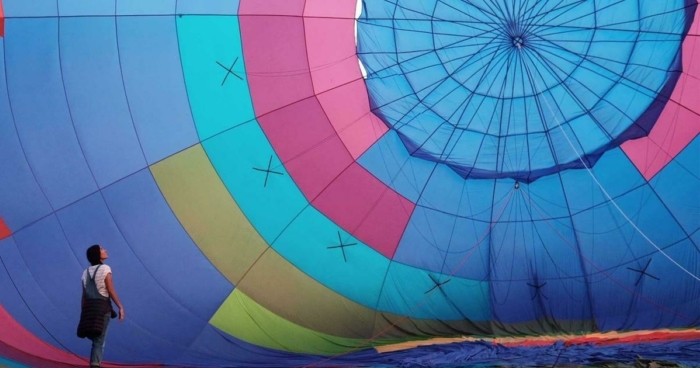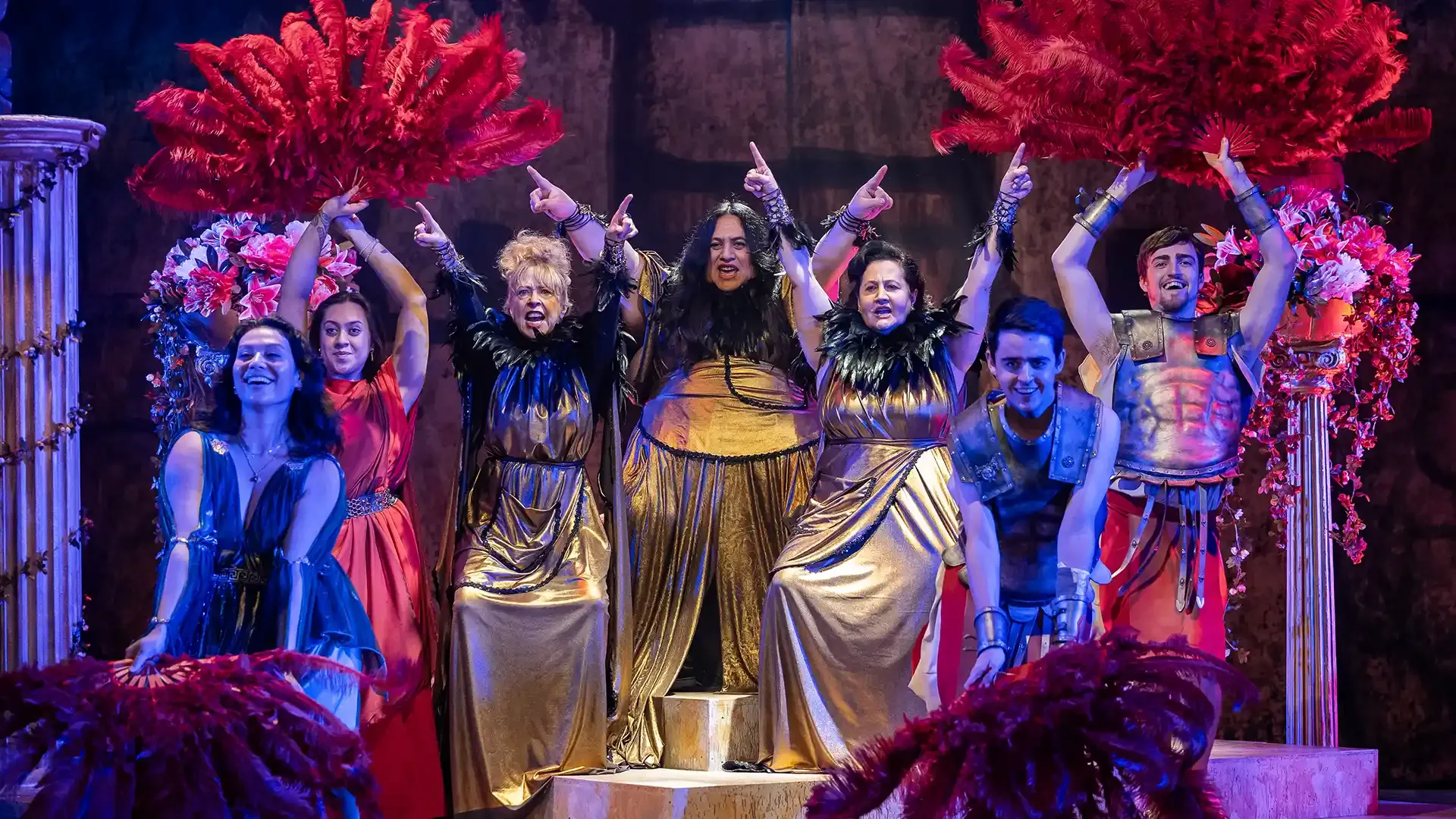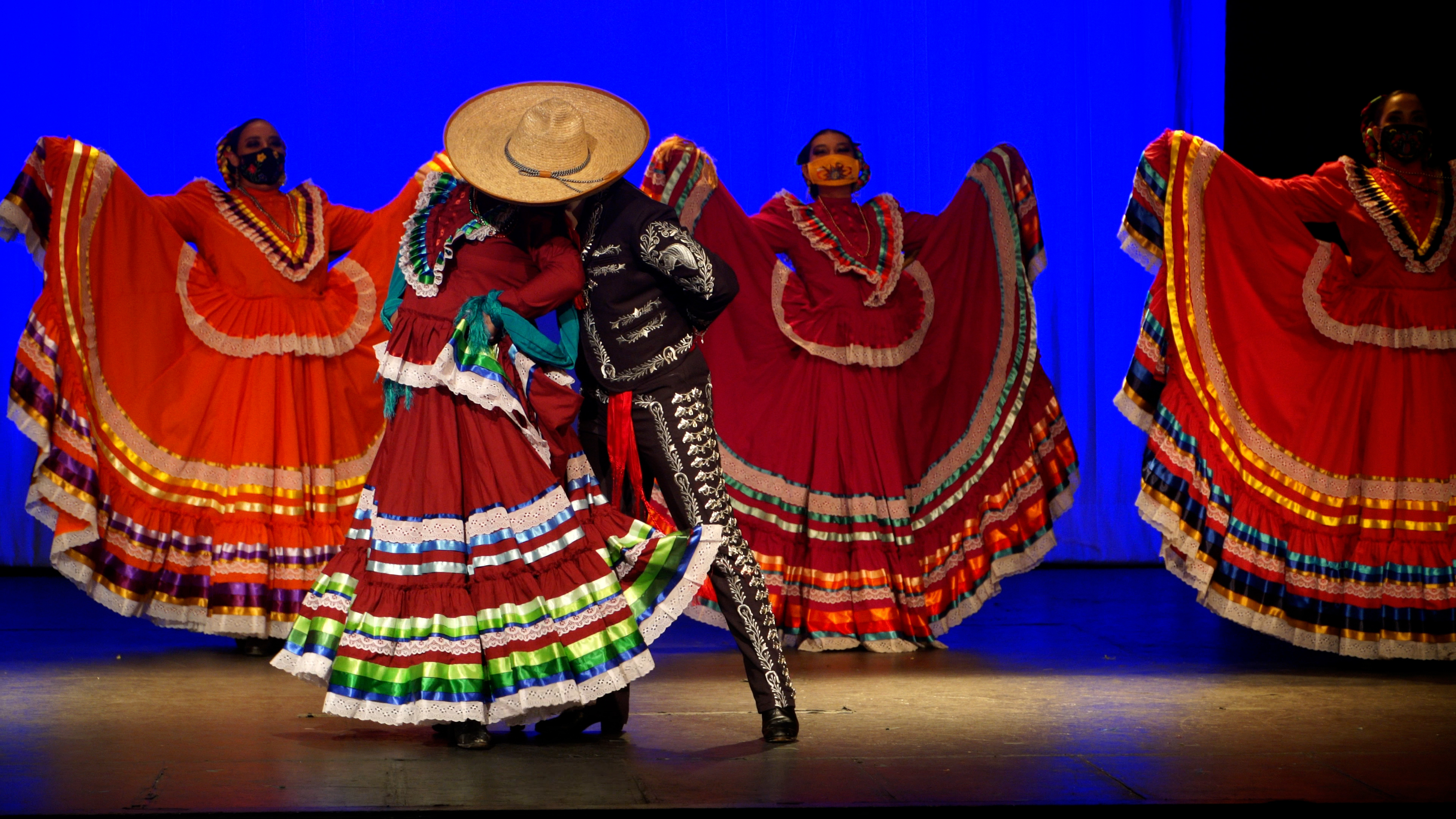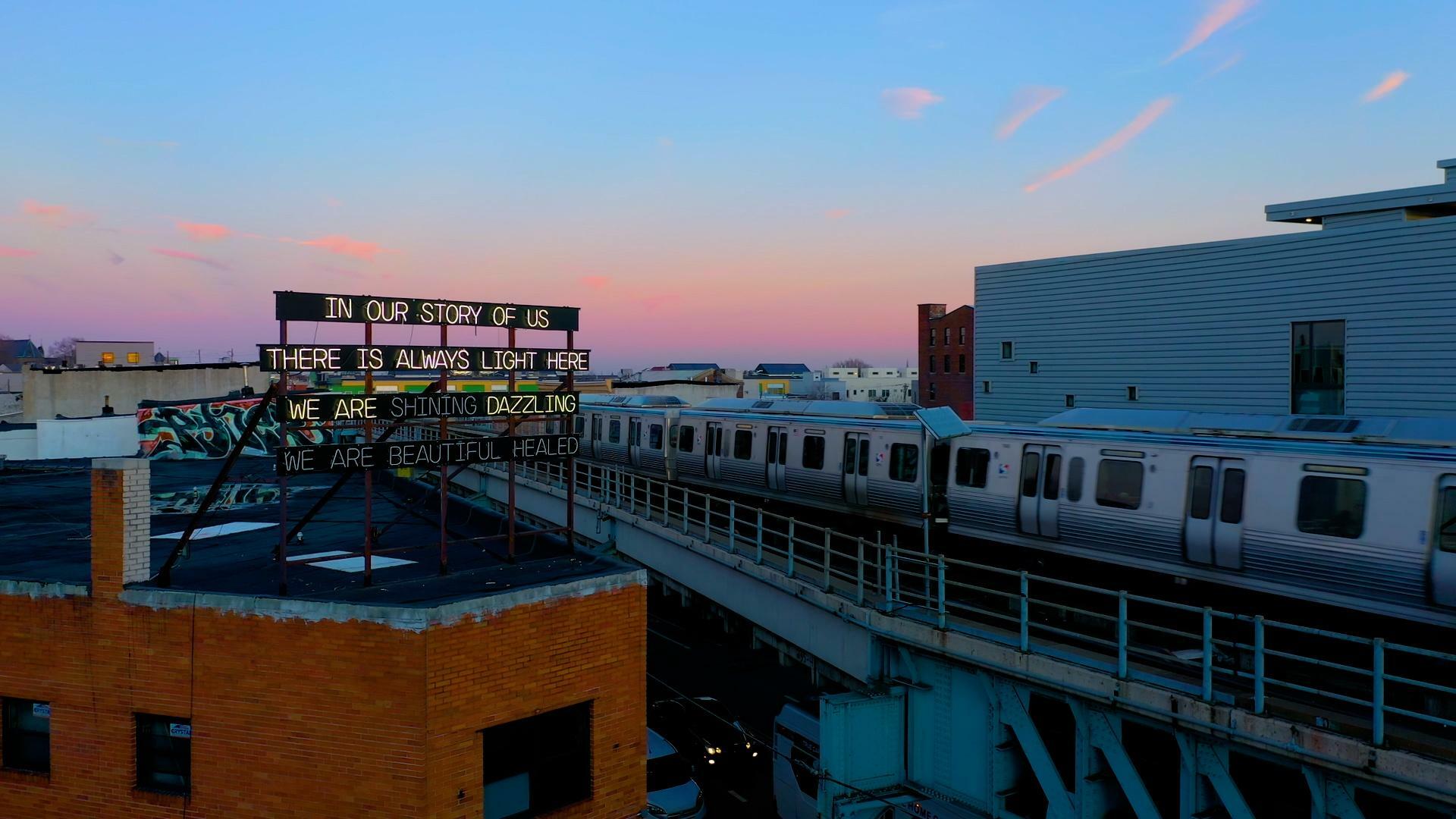Sphinx Virtuosi, an 18-person string ensemble composed of Black and Latinx musicians, is challenging the canon of classical music in America. The acclaimed chamber orchestra began touring the country last fall with its new program entitled, “Tracing Visions.”
The concert showcases the work of Black and Latinx composers, from an interpretation of the Black National Anthem, “Ev’ry Voice,” to a string arrangement of an Andante cantabile piece by composer Florence Price, giving audiences a more complete history of classical music. It’s a curated selection in keeping with the mission of Sphinx, the Detroit-based organization aiming to promote and support a more diverse world of classical music through its annual competition, performance academy, and the Virtuosi, among its many programs. Founded by violinist Aaron P. Dworkin, and now led by Artistic Director and President Afa S. Dworkin, the Sphinx Organization celebrates its 25th anniversary this year.
Among the ensemble sits cellist Thomas Mesa who performs “Seven,” a solo by Andrea Casarrubios. The performance has been praised as one of the most “emotionally resonating” performances of the program, in a review of their Madison, Wisconsin stop. The piece is inspired by the nightly seven o’clock applause for frontline workers during the early months of the COVID-19 pandemic. Mesa performed the piece in front of a live audience for Virtuosi’s fall tour.
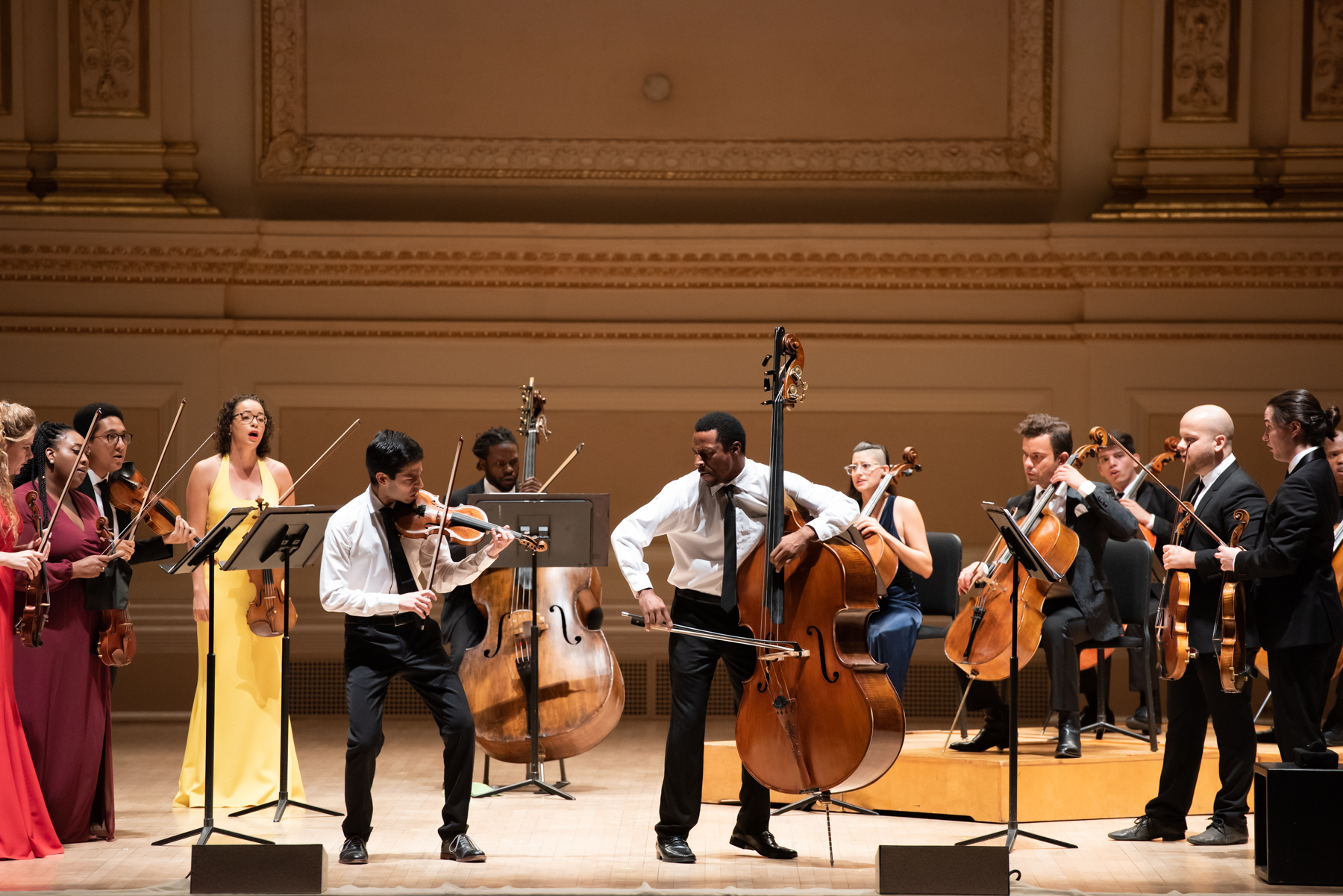
Mesa and Casarrubios met each other as young cellists at the Heifetz Music Festival in Wolfeboro, New Hampshire. After years of friendship, Mesa reached out to Casarrubios during the pandemic lockdown with an assignment. “I wanted to give composers an outlet,” said Mesa, “[Andrea’s] voice interested me because I've heard some of her music in the past and I was captivated.” Partnerships among the musicians often bear fruit, and the Sphinx Organization encourages this kind of collective spirit.
Artistic collaborations are often made possible by the MPower Artist Grant that awards Sphinx alumni with funds for their creative projects and a means of financial support. For violinist Melissa White, the 2014 MPower Grant allowed her to commission a custom-made violin by Ryan L. Soltis. “He saw me play before he even knew I was looking for an instrument,” she said, “He saw that my hands are not actually so big, and heard what type of sound I enjoy when I play. [The violin] feels just for me.”
Her violin, which White has dubbed “Matilda,” is her prized instrument in the Sphinx-founded ensemble, Harlem Quartet, whose original members are all first prize laureates of the annual competition. The members make it a point on their tours to educate audiences with a mix of classical music by composers of color.
More recently, White founded a wellness and meditation program tailored for musicians called Intermission with fellow Sphinx laureate, Elena Urioste. “We come from complex backgrounds, all of us,” she says. “Resources are really sparse, especially in communities of minorities. So [we’re] being able to create a space that helps people feel stronger in their bodies [and] mentally when they're going to perform.” Artistic collaborations and creative projects are almost inevitable among the Sphinx alumni.
“My career as a composer and an orchestrator is very much connected to Sphinx,” says violinist Jannina Norpoth. Over the course of her career and affiliation with the organization, she has met fellow classical musicians who eventually become her closest collaborators. Among them is acclaimed composer Jessie Montgomery who received the 2019 Sphinx Medal of Excellence. “She is responsible for me being in PUBLIQuartet,” says Norpoth, “She's pushed me into opportunities that I never would have arrived in myself. [Music] arranging is one of them.”
When Norporth joined PUBLIQuartet, she used her newfound skill and talent for arrangements to transform the idea of traditional chamber music into a fusion of popular genres. She also realized that being in a small ensemble is similar to running a small business. “They didn’t teach us that in school,” she says. After attending Sphinx LEAD, the organization’s initiative for arts administration, Norpoth regrouped with the quartet and expanded the budget, which led to a GRAMMY nomination.
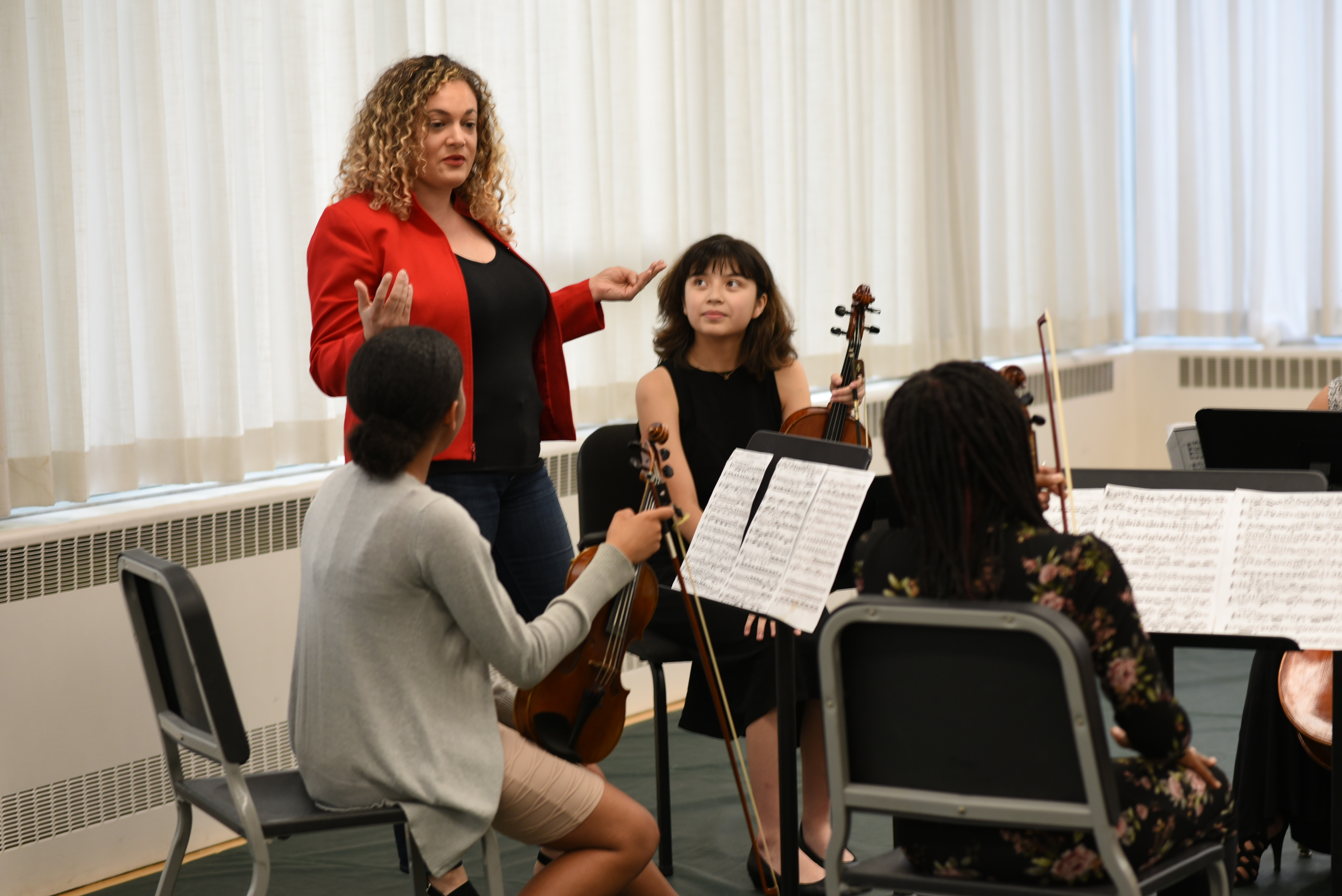
Support your local PBS station in our mission to inspire, enrich, and educate.
Sphinx also awarded Norpoth with the 2015 MPower Grant, a commission for The Scheherazade Project, a concert performance featuring her signature genre-bending style involving PUBLIQuartet, her indie rock duo HOLLANDS, and visual artist Amy Khoshbin. “[Sphinx] created opportunities where I found myself creatively,” she says, “I found people who inspired me to bring focus to my career in a way that made music truly meaningful for me.”
Norpoth recently joined the faculty of the Colburn School in downtown Los Angeles as the Music Director of Fortissima, a new music program for young women of color. Jazmín Morales, a Sphinx LEAD alumni, coordinated the program and invited Norpoth into the fold. “It gives me such hope because amazing young people exist and I can't wait to see what they do in the future,” says Norpoth.
This year, Thomas Mesa is anticipating the Sphinx Virtuosi’s spring tour of “Tracing Visions” where he will play contemporary works by composers Jessie Montgomery and Ricardo Herz. “There are so many different experiences that you have together on tour that really do bond you,” he says, “So it does feel like a family.”
The 2022 Sphinx competition was streamed virtually and broadcasted on Detroit Public Television in February. The Sphinx Virtuosi is back on tour this spring, bringing its “Tracing Visions” program to seven cities across the country.
Explore PBS Arts

The best of PBS, straight to your inbox.
Be the first to know about what to watch, exclusive previews, and updates from PBS.

